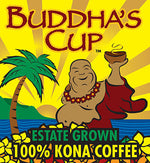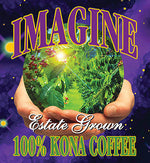How to Make Homemade Black Tea?



How to Make Homemade Black Tea?

There’s something deeply satisfying about brewing a perfect cup of black tea. It’s not just the rich flavors or the tempting aromas; it’s an art form, a ritual that calms the mind and soothes the soul.
At Buddha's Cup, we’ve mastered this art, and now, we’re here to guide you on this delightful journey. In this article, we’ll explore how to make black tea, from selecting the right leaves to mastering the brewing process.
Selecting the Finest Tea Leaves

Brewing a great cup of black tea always begins by picking good leaves. It's really important because the taste and benefits of black tea come from the leaves.
The secret of making black tea is in knowing where and how your leaves are grown. A well-chosen leaf makes black tea taste its best, guaranteeing a tasty sip every time.
Here, we'll talk about different tea types and qualities, finding good tea, and choosing flavors for your perfect brew.
Navigating Tea Grades and Varieties
Each type of black tea has its unique taste. Loose-leaf tea, picked by experts, offers delicate and complex flavors when brewed.
Broken leaves yield a strong, bold taste, perfect for those who enjoy powerful tea. They brew quickly, resulting in a rich, full-bodied cup.
Whole-leaf teas represent elegance in black tea, retaining their shape and offering a smoother, subtle flavor profile. If you prefer a gentle, refined taste, this is the ideal choice.
Sourcing High-Quality Tea
Selecting a reputable tea supplier is crucial for ensuring quality. These suppliers safeguard the finest tea leaves, maintaining high standards in every batch.
Consider the origin of the tea, as different regions offer unique flavors. For instance, Darjeeling's high-altitude estates produce aromatic and delicate teas known as the "Champagne of teas". Sri Lanka's tea gardens yield Ceylon teas with bright, bold, and brisk characteristics.
Understanding the importance of both supplier and origin enhances the overall tea experience.
Considering Flavor Profiles
Choosing black tea is like picking a favorite wine—it's all about finding the flavor you enjoy, influenced by where it's grown.
For example, Yunnan black tea, from misty mountains, has a smooth, slightly peppery taste, great for those who prefer mild yet intriguing flavors.
Alternatively, Kenyan black teas offer subtle flavors with hints of fruit and flowers, known for their bright, refreshing qualities.
Exploring black tea flavors, shaped by where it's grown, is an exciting journey, with each type offering its own unique taste.
Mastering Water Temperature and Quality
Getting the best black tea isn’t just about the leaves; the water you use matters a lot too.
The right temperature is crucial for bringing out all the flavors. Usually, black tea thrives in boiling water, around 212°F, to make it taste strong and bold.
And the quality of the water matters too. Hard water or water with too much chlorine can hide the subtle flavors of black tea. Using filtered or spring water can make a big difference, making sure you can taste all the flavors in every cup.
Perfecting the Tea-to-Water Ratio

If you've ever made black tea that was either too strong or too weak, you know how tricky it can be to get the right amount of tea and water. But why does it matter so much?
Think about it - too much tea can lead to a bitter, overpowering taste, while too little results in a lackluster infusion.
A general guideline is one teaspoon of black tea per eight ounces of water. But you could also experiment to find your ideal preference.
And remember, the quality of tea matters just as much. Want to experience the difference a premium black tea makes? Check out our Hand-Fired Tea – it's hand-rolled and highly caffeinated, perfect for those who appreciate a robust cup.
3 Steeping Techniques for Rich Aromas
In simple terms, steeping means letting your tea leaves soak in hot water to bring out all their flavors and aromas.
Steeping your black tea is where the real magic truly happens, and finding the right time can transform your brew from good to exceptional.
This section will guide you through steeping techniques to enhance the aroma and flavor of your black tea.
Optimal Steeping Times for Flavor Extraction
Experimenting with steeping times allows you to unlock the fullest flavor potential of black tea.
Shorter steeps, 1-2 minutes, yield a brisk, invigorating cup with a hint of astringency, ideal for bold flavor.
Extending to 3-5 minutes enriches the brew, drawing out deeper notes and a fuller body, but beware of bitterness if steeped too long.
Find your perfect balance by adjusting within this range.
Water Temperature Precision
The temperature of your water plays a big role in how your black tea tastes and smells.
Aim for around 212°F (100°C) for the best balance – it extracts the tea's full fragrance without making it bitter.
Too hot and it might get bitter; too cold and the flavor might not come out enough.
Tea Leaf Agitation Techniques
Tea leaf agitation techniques are crucial for maximizing aroma without compromising integrity.
Use slow, circular motions when stirring or swishing to bring out all the fragrance. Avoid stirring too hard because that can damage the delicate leaves and make the tea taste bitter.
Enhancing Flavor with Additives

You can elevate the flavor profile of your black tea by exploring additives like milk, sugar, or spices.
Milk adds creaminess and smoothness, balancing the tea's boldness. Sugar enhances sweetness, particularly in robust teas, while spices like cinnamon or cardamom infuse warmth and complexity.
Each additive offers a different dimension to your black tea, complementing its natural taste profile in diverse ways.
Iced vs. Hot Black Tea
This section delves into the nuances of brewing both iced and hot black tea. Discover how to customize your tea experience based on your preferences for temperature and taste.
Brewing Techniques for Hot Black Tea
When brewing hot black tea, optimizing steeping is essential for a satisfying experience.
Ensure water temperature is around 212°F (100°C) for black tea, allowing flavors to fully develop without bitterness. Steep for 3-5 minutes, depending on desired strength.
Experiment with shorter or longer durations to tailor to your taste. Keep in mind that different varieties may require adjustments.
Making Iced Black Tea a Chilling Perfection
To achieve chilling perfection with iced black tea, consider cold brewing methods for a smooth and refreshing outcome.
Simply steep black tea leaves in cold water overnight in the fridge, allowing flavors to infuse gradually.
Alternatively, explore quick-chill techniques by brewing a double-strength hot tea and then pouring it over ice to rapidly cool. Adjust sweetness or add citrus for extra zest.
These methods preserve the tea's nuanced flavors, delivering a revitalizing and satisfying iced beverage.
Flavor Adjustments for Temperature Variations
Temperature variations significantly impact flavor perception in black tea.
Hot tea tends to emphasize boldness and depth, while iced versions highlight refreshing qualities with a milder taste.
To maintain consistent flavor across temperatures, adjust brewing parameters accordingly.
For hot tea, use slightly higher temperatures and longer steeping times to extract robust flavors. When making iced tea, brew at double strength to compensate for dilution from melting ice.
Teaware and Serving Ideas for Creative Presentation

Invest in stylish teaware like elegant teapots and delicate cups to enhance your black tea experience. Serve tea in unique vessels such as glass mugs or vintage teacups for added charm.
Arrange accompaniments like lemon slices or fresh herbs for a visually appealing spread, whether hosting a gathering or enjoying a quiet moment.
Storing and Preserving Tea Freshness

To maintain homemade black tea's freshness, store leaves in airtight containers away from light, moisture, and strong odors. Opt for opaque tins or jars with tight seals to prevent exposure to air and humidity.
Keep tea separate from spices to avoid unwanted flavor absorption. Follow these guidelines to ensure your tea retains optimal flavor and aroma with every sip.
Conclusion
As you conclude your journey of crafting the perfect cup of homemade black tea, relish in the satisfaction of mastering this art.
Through experimentation with steeping times, additives, and presentation, you've honed your skills and preferences. Whether you prefer a bold and robust brew or a delicate and nuanced cup, your expertise shines through in every sip.
Continue your tea exploration by discovering new varieties and blends from Buddha's Cup. Explore our hand-fired and hand-rolled black teas, highly caffeinated and full of flavor, to embark on your next tea adventure.
Frequently Asked Questions
What equipment do I need to brew black tea at home?
Brewing homemade black tea requires minimal equipment. You'll need a tea kettle or pot to heat water, a tea infuser or strainer to steep the tea leaves, and a teapot or mug to serve the brewed tea.
Optionally, you can use a timer to ensure proper steeping time and a thermometer to monitor water temperature for optimal brewing.
What are the steps to brew the perfect cup of homemade black tea?
Brewing homemade black tea is simple. Start by heating water to around 200-212°F (boiling point) and then pour it over your black tea leaves in a teapot or mug.
Allow the leaves to steep for 3-5 minutes, depending on your desired strength. Finally, remove the tea leaves or strain the infusion and enjoy your freshly brewed cup of black tea. Adjust steeping time and tea-to-water ratio to customize the flavor to your preference.
What type of black tea leaves should I use for homemade brewing?
You can use a variety of black tea leaves for homemade brewing, depending on your flavor preferences. Popular options include Assam, Darjeeling, Ceylon, and Keemun. Experimenting with different tea varieties can help you discover your favorite flavors and aromas.









